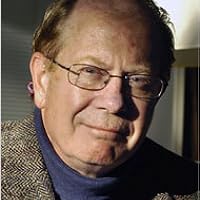Two Party System Quotes
Quotes tagged as "two-party-system"
Showing 1-6 of 6

“PARTY OF NO? How about a No Party System? Using No electoral college, No gerrymandering and No private monetary contributions. No?”
― Random Molecular Mirroring
― Random Molecular Mirroring

“And it started out fun. We were chattering enthusiastically, flipping between CNN, MSNBC, and FOX News. But as the evening wore on, and the numbers rolled in, it got quieter, and I found myself becoming intensely depressed. Why was I putting myself through this? The issues I’ve devoted my life to have become so marginalized by the coverage that they have no possible relevance to me. I can’t even blame the media — people simply don’t care about alternate-party politics. And why should they? I’m so far in the minority that my activism is a joke, a punchline that stopped being funny years ago. It goes beyond rooting for the underdog. It’s not rooting for the Giants: it’s more like, say, rooting for the Twins. But during the Super Bowl.”
― Indecision Now! A Libertarian Rage
― Indecision Now! A Libertarian Rage
“Come the next election, in a two-party or two-party-plus system, a very small swing amongst the voters, a slight shift of the median voter on the normal distribution curve, may lead to a complete change of government, whereupon a new set of persons takes over, and a new set of ministers accepts collective responsibility for policies which, in some instances, completely overturn the decisions of the former administration. Yet all is due to just a very small swing. Majoritarian politics, which some claim offers stable government, is actually part of a system which perpetuates instability, especially if viewed from a long-term perspective.”
― From Majority Rule to Inclusive Politics
― From Majority Rule to Inclusive Politics

“Though many historians have taken a compromise or split-the-different position over the ensuing years, the basic choice has remained constant, as historians have declared themselves Jeffersonian or Hamiltonians, committed individualists or dedicated nationalists, liberals or conservatives”
― Founding Brothers: The Revolutionary Generation
― Founding Brothers: The Revolutionary Generation

“[T]he revolutionary generation found a way to contain the explosive energies of the debate in the form of an ongoing argument or dialogue that was eventually institutionalized and rendered safe by the creation of political parties.”
― Founding Brothers: The Revolutionary Generation
― Founding Brothers: The Revolutionary Generation

“A New York Times/CBS News poll conducted in early 1992 showed that
public opinion on welfare changed depending on how the question was
worded. If the word “welfare” was used, 44 percent of those questioned said
too much was being spent on welfare (while 50 percent said either that the
right amount was being spent, or that too little was being spent. But when the
question was about “assistance to the poor,” only 13 percent thought too much
was being spent, and 64 percent thought too little was being spent.
This suggested that both parties were trying to manufacture an antihumanneeds mood by constant derogatory use of the word “welfare,” and then to
claim they were acting in response to public opinion. The Democrats as well
as the Republicans had strong connections to wealthy corporations. Kevin
Phillips, a Republican analyst of national politics, wrote in 1990 that the
Democratic Party was “history’s second-most enthusiastic capitalist party”
― A People’s History of the United States: 1492 - Present
public opinion on welfare changed depending on how the question was
worded. If the word “welfare” was used, 44 percent of those questioned said
too much was being spent on welfare (while 50 percent said either that the
right amount was being spent, or that too little was being spent. But when the
question was about “assistance to the poor,” only 13 percent thought too much
was being spent, and 64 percent thought too little was being spent.
This suggested that both parties were trying to manufacture an antihumanneeds mood by constant derogatory use of the word “welfare,” and then to
claim they were acting in response to public opinion. The Democrats as well
as the Republicans had strong connections to wealthy corporations. Kevin
Phillips, a Republican analyst of national politics, wrote in 1990 that the
Democratic Party was “history’s second-most enthusiastic capitalist party”
― A People’s History of the United States: 1492 - Present
All Quotes
|
My Quotes
|
Add A Quote
Browse By Tag
- Love Quotes 97k
- Life Quotes 75.5k
- Inspirational Quotes 72.5k
- Humor Quotes 43.5k
- Philosophy Quotes 29.5k
- Inspirational Quotes Quotes 27k
- God Quotes 26k
- Truth Quotes 23.5k
- Wisdom Quotes 23.5k
- Romance Quotes 23k
- Poetry Quotes 22k
- Death Quotes 20k
- Happiness Quotes 18.5k
- Life Lessons Quotes 18.5k
- Hope Quotes 18k
- Faith Quotes 18k
- Quotes Quotes 16.5k
- Inspiration Quotes 16.5k
- Spirituality Quotes 15k
- Religion Quotes 15k
- Motivational Quotes 15k
- Writing Quotes 14.5k
- Relationships Quotes 14.5k
- Life Quotes Quotes 14k
- Love Quotes Quotes 13.5k
- Success Quotes 13.5k
- Time Quotes 12.5k
- Motivation Quotes 12k
- Science Quotes 11.5k
- Knowledge Quotes 11k

